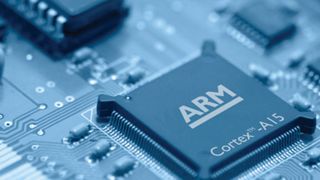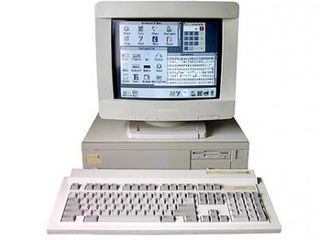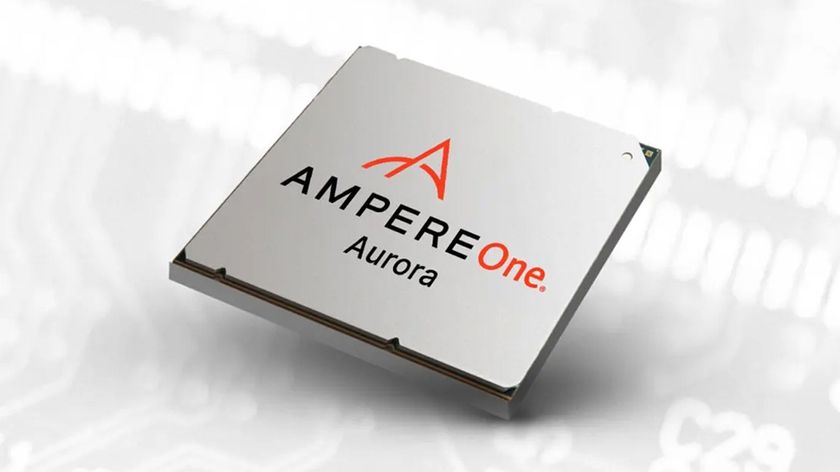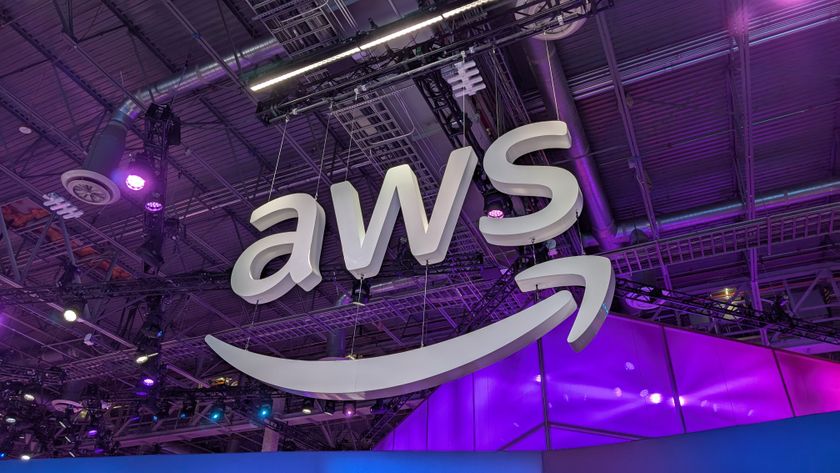From a small Acorn to 37 billion chips: ARM's ascent to tech superpower
We talk to Sophie Wilson, inventor of the ARM instruction set
"And that's the secret. It's an enormous ecosystem. ARM succeeds through being in partnership with everybody, essentially. Even Intel has an ARM license. Even Intel still sell single chips for phones with ARMs in them."

More Acorn machines and RISC OS
One of the more surprising aspects of Wilson's chat about the early days at Acorn was how certain the team was that they would succeed. "We were supremely confident," she says, without a hint of irony or doubt.
"The team of people that created ARM, particular Steve Furber and myself, had been working together for long enough to have a good rapport and working relationship, and we'd never failed at doing anything. Everything that we tackled we'd succeeded.
"Designing a microprocessor as Steve has remarked is just another complicated piece of digital logic and he was good at designing digital logic! And designing the instruction set, I'd actually designed fantasy instruction sets before so even that was another logical step forward. It all felt extremely possible.
"Furthermore we had a conviction that we knew what people were doing wrong. We had chips in our hands from Intel, Motorola and National Semiconductor, and we could see why they weren't performing well. We set out to remedy that in making ARM, and we were quite right."
After the BBC Micro, Acorn launched the fully ARM-based Archimedes in 1987. But RISC OS - Acorn's advanced and rather Windows 95-like operating system - wasn't ready. "There was a year which we had to go with an operating system that was essentially a clone of the BBC operating system, and that was painful because it wasn't good enough," says Wilson regretfully.
"But yes, in 1988 RISC OS came out and that was dramatic because it was then a fully-featured system that could do things that few machines could at the time.
Are you a pro? Subscribe to our newsletter
Sign up to the TechRadar Pro newsletter to get all the top news, opinion, features and guidance your business needs to succeed!
"It was a machine with a high-resolution machine with anti-aliased graphics with WIMP (Windows, Icons, Mouse, Pointers). The Macintosh had been around for a time but it didn't have anti-aliased graphics, so the on-screen experience was very poor. RISC OS gave you WYSIWYG like nobody have ever seen."
RISC OS lives on, and you can download it for the Raspberry Pi - check it out as part of our feature Raspberry Pi operating systems: 5 reviewed and rated.
But while Acorn's microprocessor was strong, its advanced hardware had a surprisingly short lifespan due to the success of the IBM PC, and even by the time it was releasing the early 1990s RISC OS-based machines such as the Acorn A4000, A5000 and RISC PC, it was clear that time was running out for the company as a British computer manufacturer.

"I think by the time Acorn was capable of tapping business with RISC-based technology, the IBM PC already had a strong foothold", says Wilson. "You can't really blame one thing, but there was VisiCalc on the Apple II and Lotus 123 on the IBM PC - you had to have one of those two programs to run a business. If we'd written an equivalent program for BBC machines, it would never be the same program."
Wilson's recent work
Wilson now works at semiconductor giant Broadcom, working on a processor line she also created - FirePath, a DSL chip that has also had a major impact. "If you have a DSL line going into your house, the kit at the other end that sends you the data is run by a FirePath processor. Hundreds of millions of them have been shipped," says Wilson.
![Wilson today [Image credit: Broadcom]](https://cdn.mos.cms.futurecdn.net/48d687bcdab26a820280eb1ba5eefdad-320-80.jpg)
She takes up the story: "In 1990 I started playing with new ideas for a processor inside Acorn. And obviously lots of other things were going on. I wrote the RISC OS multimedia subsystem Acorn Replay, so what with that and launching Acorn's Online Media division and designing the SA1500/1501 digital media processor, there wasn't a lot of time for my little experiments.
Dan (Twitter, Google+) is TechRadar's Former Deputy Editor and is now in charge at our sister site T3.com. Covering all things computing, internet and mobile he's a seasoned regular at major tech shows such as CES, IFA and Mobile World Congress. Dan has also been a tech expert for many outlets including BBC Radio 4, 5Live and the World Service, The Sun and ITV News.










